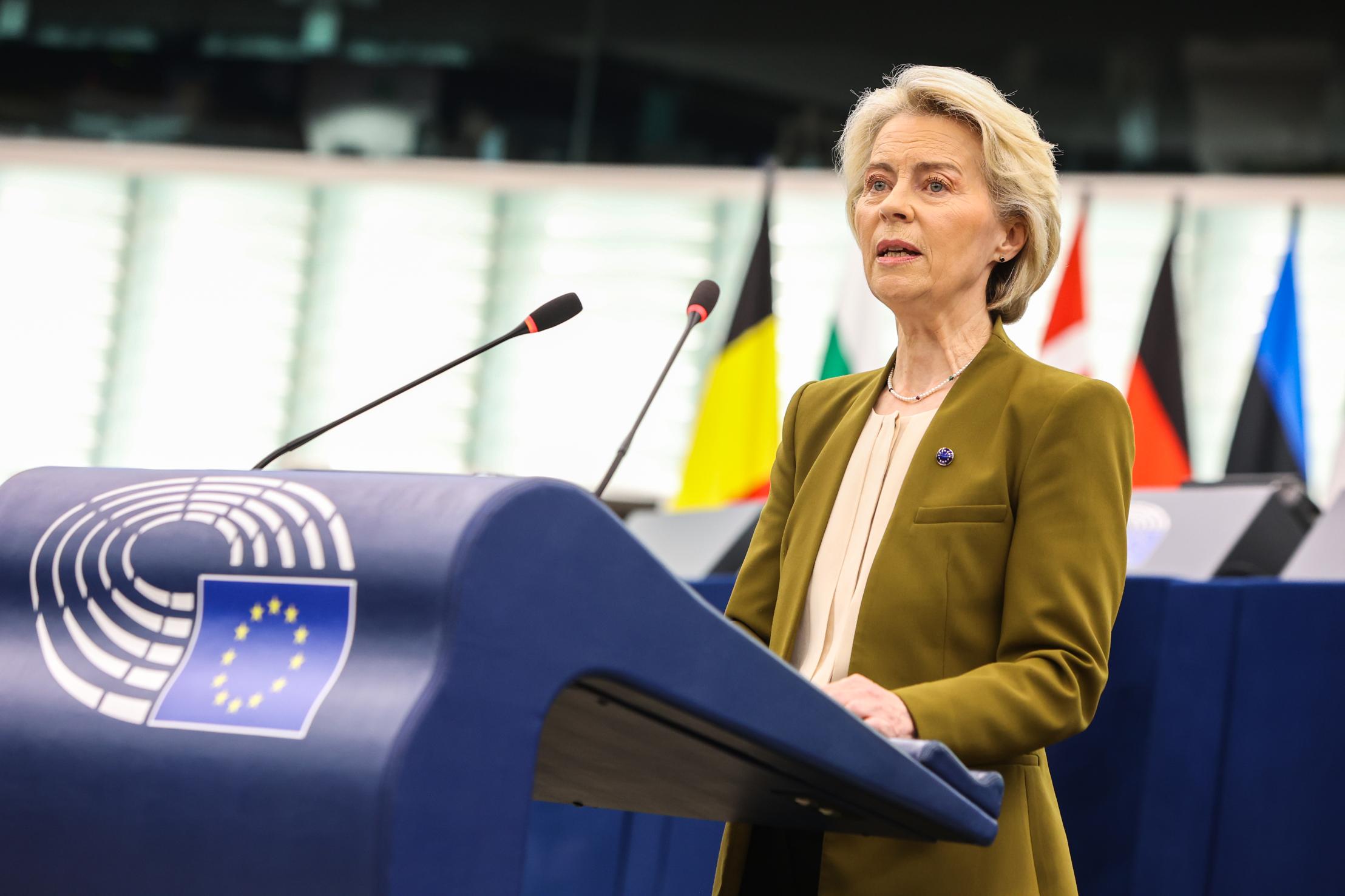Ursula von der Leyen’s exam: passed or failed?

The 2025 State of the Union address by President Ursula von der Leyen, delivered on September 10 at the European Parliament in Strasbourg, marked one of the most substantial political moments of the legislature. With an urgent tone and a far-reaching vision, von der Leyen charted a course that wove together security and defense, the management of international crises, the green transition, social policies, and the strengthening of European democracy.
Among the key highlights were: the launch of a roadmap for common defense and support for Ukraine through new financial instruments; measures against Israel and a renewed commitment to a two-state solution; the announcement of new trade and industrial tools to support the green transition and European competitiveness; the Single Market strategy and technological acceleration; stronger attention to social justice, with the European Anti-Poverty Strategy and the Quality Jobs Act; the creation of instruments to counter disinformation and manipulation on social media; and, finally, a strong call for European unity and the defense of shared values.
2025 State of the Union Address by President von der Leyen
By Alfredo De Feo – Published in the Gazzetta di Parma, 11/09/2025
We now present the analysis and reflections of Alfredo De Feo, Scientific Director of the European College of Parma, who offers a critical and personal perspective on this crucial moment for the European Union.
On the morning of September 10, Ursula von der Leyen stood before the European Parliament with a ninety-minute State of the Union speech, addressing not only the institutions but the very democratic fabric of Europe.
The address was primarily directed at political groups which, despite their differences, broadly support the European project. In this respect, President von der Leyen could claim the backing of a majority even larger than the one that endorsed her for her second mandate. She can rely on a majority that, on different occasions, may draw support from the Christian Democrats, the Socialists, the Liberals, the Greens, and the Conservatives (the group led by Italy’s Fratelli d’Italia). Despite important distinctions, all groups were able to find key points reflecting their own demands.
The speech came at a moment of growing political fragility for the President, marked by criticism over the management of trade policy, her often accommodating stance toward President Trump, and internal EU tensions, particularly concerning the enforcement of sanctions against big tech companies for breaches of European law.
The program of proposals advanced is ambitious, aiming to defend Europe’s independence, security, competitiveness, and sovereignty in no uncertain terms. But will these ideas quickly translate into clear proposals that put Member States before their responsibilities? Or will the Commission fall back on the usual informal bargaining to secure the bare minimum of support? The doubt is legitimate — and in the latter case, the proposals risk reaching the starting line already weakened. Over the past 12 months, for example, only 11% of the more than 400 recommendations from the Draghi and Letta reports have been implemented, a sign of ambition often slowed by the difficulty of convergence among the 27.
The speech sought to please pro-European forces, but the challenge now is to demonstrate vision and leadership through action: turning intentions into bold proposals and persuading governments that investing in shared priorities benefits each Member State.
At the same time, realism is needed: it is unlikely that all the measures proposed will achieve unanimity among Member States. Yet this must not prevent progress with those willing to move forward, through the enhanced cooperation mechanism provided for by the Treaties — the same formula that, after all, made the euro possible.
It is therefore to be hoped that the Commission will fully exercise its institutional role, while bearing in mind that it is the Member States who hold the purse strings — and most of the proposals come with additional costs. The real challenge will be convincing governments that investing in European priorities will bring advantages to all. This is President von der Leyen’s toughest mission. Raising public awareness and mobilizing opinion on these issues will be crucial in shaping intergovernmental negotiations and ensuring greater security, competitiveness, and independence for Member States, for Europe, and above all for future generations.
The outcome of this examination therefore remains uncertain: only if the Commission can translate promises into concrete actions and convince Member States to back the proposed course of action can von der Leyen claim success. Otherwise, it will be the credibility of the institutions that pays the highest price — with the future of the European Union itself at risk.


